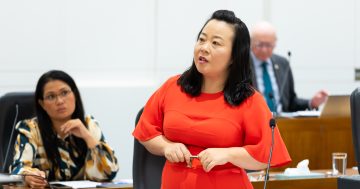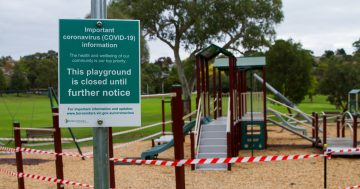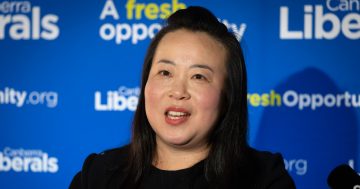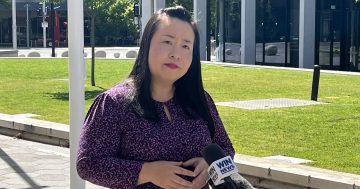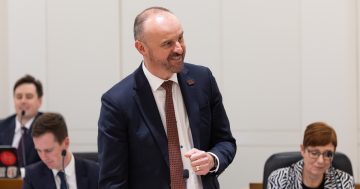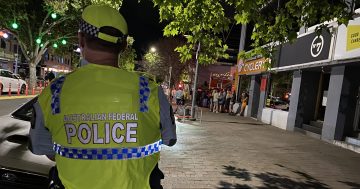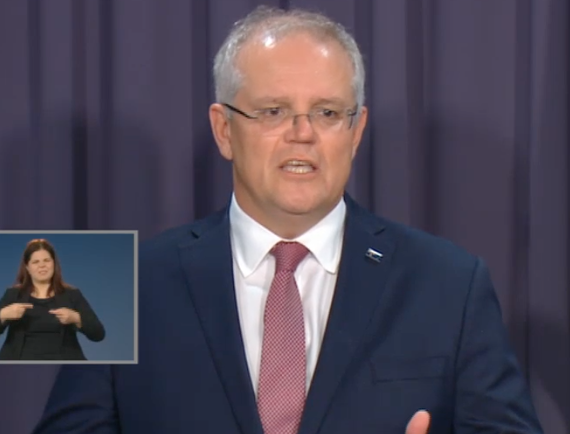
Prime Minister Scott Morrison address the nation on television after a National Cabinet meeting. Photo: File.
It seems we’ve all joined Team Australia in this time of pandemic and economic collapse.
Political opposition parties have been consigned to irrelevance as governments get on with preventing disaster. Federal, state, and territory leaders – Liberal and Labor – sit around the table together, a war cabinet waging a campaign to stave off an invisible enemy and keep the nation afloat.
Mind-boggling, open-ended spending. Freedoms curtailed. New powers legislated. No footy, no festivals, no fun.
And, generally, we have taken it all in our stride as part of what is necessary to avoid both the twin terrors of disease and want.
There have been exhortations to remember our grandparents’ stories of their sacrifices as the nation endured the Great Depression and the war that followed.
Both Prime Minister Scott Morrison and Chief Minister Andrew Barr have been on a unity ticket, urging us to all pull together to get to the other side as soon as we can.
I get that. The stakes are too high for narrow ideological agendas.
But in this kind of atmosphere, criticism can seem bad for morale, hard questions like poor form and doubt an enemy in itself.
Compared with some of the liberties being taken by the world’s strongmen in these times, Australia’s response seems benign but that doesn’t mean we should totally suspend our disbelief along with our parliaments.
The Canberra Liberals, worried about government overreach, last week pushed for more transparency about legislative changes.
The ACT Law Society is concerned about denying the right of a jury trial to accused persons.
There remains issues deserving of our attention that still need to be discussed, debated and resolved.
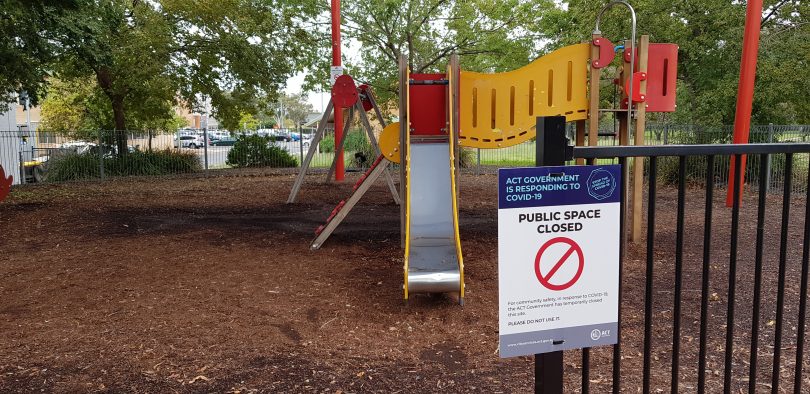
Sign of the times: Playgrounds closed in Canberra. Photo: Region Media.
As journalists feel the pressure to jump on board the team bus for the ride, while facing their own existential threat, they must step back and remember to do their jobs.
They must remember just who they represent, and continue to respectfully talk truth to power and hold our elected leaders to account, even as they see colleagues join the dole queues when media companies lose their advertisers, crunched by the economic shutdown.
If ever there was an essential industry in this fearful public health crisis and time of immense government action it is the media, which can be a source of credible information and a check on the decision-makers.
That includes regional companies such as Region Media, publisher of RiotACT, which in only a few years has become a firm part of the media landscape in the Canberra region, adding to its diversity and providing more choice for its 440,000 residents.
The more credible voices the better, and it is tragic to see regional mastheads having to close – if only temporarily – at a time when they are most needed.
Ironically, the hunger for news and information has never been greater. Newspaper readership is up and website audiences are surging even as revenue pressures grow and hard decisions are contemplated.
If we are all in this together, we cannot afford to let these vital organisations also fall victim to the virus.
For our governments, honesty is still the best policy. Candour and full disclosure should be their side of the bargain in this battle, in which we have conceded them great power, and the authority to spend billions.
For us, we can still be team players and question the skipper. It is OK to demand more information, to query the practicality of a measure, and to advocate for the forgotten or overlooked.
Because when we do get to the other side, we will want our freedoms back.
Come October, we may not have Floriade but we will have, hopefully, our festival of democracy, as Mr Barr calls it.
That will be as good a celebration as any, if by then, the battle is won or at least victory is in sight.












